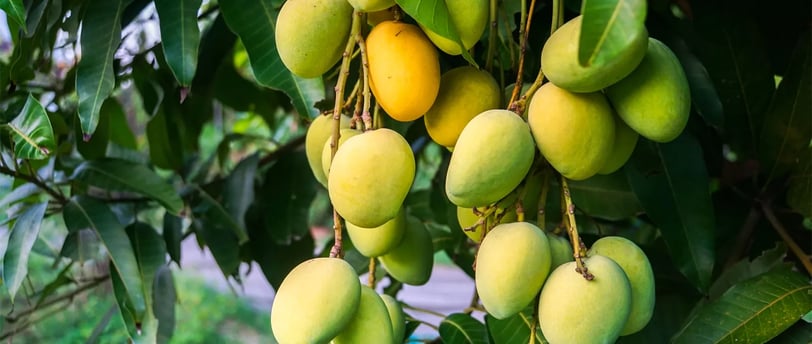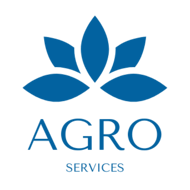The Rising Potential of Mango Fields: Funding and Future Prospects
2/2/20123 min read


Global Mango Advancement Project: Empowering Growers with Innovation and Support through $7.5 Million Investment
Mangoes—often called the “king of fruits”—are cherished worldwide for their flavor, nutritional value, and cultural significance. They are also a critical source of income for millions of farmers in tropical and subtropical regions. However, the global mango sector faces a range of challenges, from climate volatility and pests to post-harvest losses and limited access to modern resources.
To address these issues and uplift the mango farming community, the Global Mango Advancement Project (GMAP) has been launched, with a $7.5 million international investment aimed at fostering innovation, sustainability, and direct farmer support. Through field-level initiatives, subsidized inputs, and collaboration with research institutions, the project is helping transform mango cultivation in key growing regions.
Mission: Revitalizing the Mango Industry Through Smart Agriculture
The Global Mango Advancement Project is committed to:
Introducing modern farming practices and disease-resistant techniques.
Providing affordable, research-based fertilizers and plant medicines.
Promoting sustainable and climate-resilient cultivation.
Empowering local mango farmers through training, R&D, and subsidies.
Creating global supply chain access for better profitability.
The project operates across multiple continents, focusing primarily on Indonesia, India, and Mexico—three of the world's leading mango producers.
Strategic Implementation in Key Mango Regions
🍃 Indonesia
Indonesia is home to several popular mango varieties like Arumanis and Gedong Gincu. In regions like West Java and East Nusa Tenggara, the GMAP has launched:
Mango Excellence Centers offering 50% subsidies on fertilizers.
Demonstration orchards teaching pruning, grafting, and canopy management.
Soil analysis services to ensure optimized nutrient application.
Mobile access to pest alerts and agronomic tips.
🍃 India
India is the world's largest mango producer, with famous varieties like Alphonso, Dasheri, and Kesar. In Maharashtra, Uttar Pradesh, and Andhra Pradesh, the project is supporting:
Distribution of subsidized (60%) fertilizers and fruit-set boosters.
Treatment kits for common diseases like mango malformation and anthracnose.
Promotion of organic mango production for export readiness.
Farmer cooperatives that benefit from group purchase and export marketing.
🍃 Mexico
Mexico is a key exporter of mangoes, with strong markets in the U.S. and Europe. In states like Chiapas, Sinaloa, and Nayarit, GMAP supports:
40–50% subsidy schemes on fertilizer packages and foliar sprays.
Post-harvest management workshops for storage and grading.
Integrated pest management (IPM) training, especially targeting fruit flies.
Market linkage assistance through mango grower networks.
Scientific Inputs and Advanced Fertilizer Support
To boost productivity and fruit quality, GMAP offers:
Research-backed fertilizers, specially formulated for mango flowering and fruit development stages.
Bio-based pest control products to treat fruit borer, powdery mildew, and other issues.
Foliar nutrition sprays, calcium boosters, and anti-fungal solutions.
Customizable input packages available in raw form (for experienced farmers) or fully researched and ready-to-use products.
Subsidies on these inputs range from 40% to 60%, depending on the region and project category.
Collaborative R&D and Field Testing
One of the project’s strengths is its farmer-inclusive research approach. While distributing subsidized products, field teams also collect data from mango growers on:
Soil response and fruit yield.
Disease outbreaks and recovery speed.
Pest resistance and environmental interactions.
This data is shared with global research partners and used to:
Improve future product formulas.
Develop climate-specific mango guides.
Launch mobile apps that offer real-time farmer recommendations.
Subsidies for Farmer Upliftment
The cornerstone of the Global Mango Advancement Project is its direct farmer support through input subsidies, including:
Up to 60% subsidies on fertilizer and treatment kits in India.
50% subsidies on organic foliar and soil-based boosters in Indonesia.
40–50% input support in Mexico, particularly for smallholder and indigenous farmers.
Free mobile training apps and workshops, including mango grading, packaging, and export norms.
These subsidies reduce financial risk and help farmers adopt higher-quality inputs without burdening their budgets.
Eco-Friendly and Climate-Smart Practices
To ensure sustainability, the project promotes:
Rainwater harvesting systems for irrigation in water-scarce mango zones.
Compost and green manure usage to rejuvenate soil.
Integrated pest management (IPM) and biological controls.
Carbon footprint reduction techniques like zero tillage and natural mulching.
This approach helps farmers adapt to climate change while protecting biodiversity and preserving soil health.
Education, Digital Tools, and Capacity Building
The GMAP focuses heavily on building the capacity of mango growers through:
Field-based training schools for youth and women in agriculture.
Multilingual mobile apps that provide mango-specific tips, weather alerts, and harvest planning.
Digital soil and leaf analysis through handheld kits.
Farmer discussion groups and helplines offering expert advice.
These tools ensure that mango farmers not only receive inputs, but also know how to use them effectively and profitably.
Conclusion: Growing the Mango Industry Together
With $7.5 million in funding and active programs in Indonesia, India, and Mexico, the Global Mango Advancement Project is driving meaningful change in mango cultivation. By combining financial subsidies, scientific knowledge, field-level execution, and farmer-first development, the project is ensuring mango growers around the world are equipped for success—today and in the future.
From small orchards in Java to vast farms in Andhra Pradesh and the export fields of Nayarit, the mango industry is undergoing a transformation powered by innovation, inclusivity, and international cooperation.
